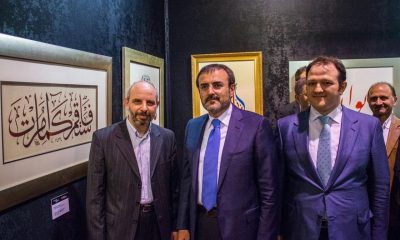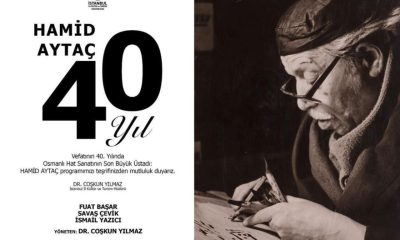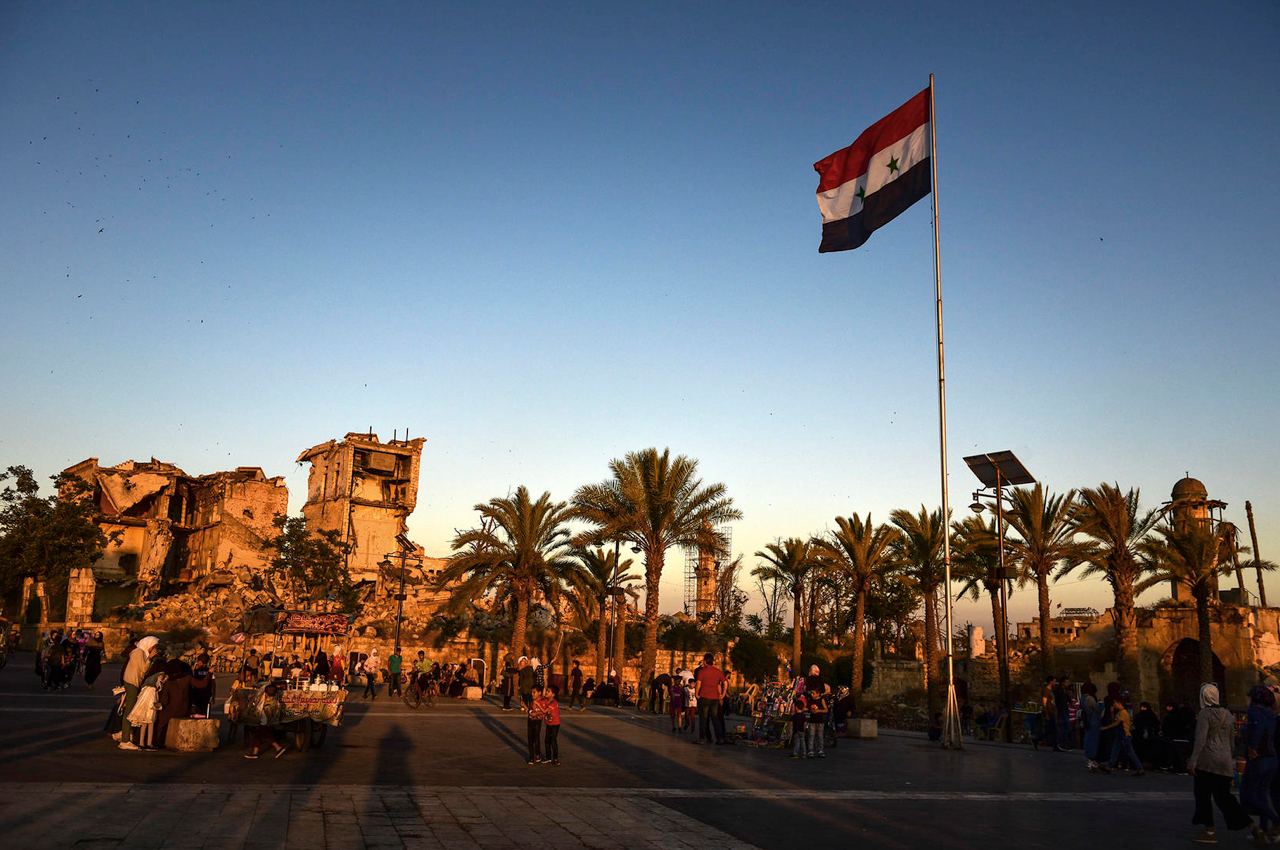In an interview with Muslimpress.com, Afraa Dagher emphasizes on the role that Syrian women play in the fight against terrorism. Here’s the full text of the interview:
What role do Syrian women play in the fight against terrorists?
No society could be built by men only. Women are the other important base, especially when this country is under a global attack. In Syria, we, as women, used to join men in every side.
However, this war brought out more of our encouragement and sacrifices as well as men’s.
In Syria, you will see the mothers of soldiers, martyrs, and the wounded, those mothers who send their sons to join the Syrian Arab Army in defending and protecting Syria against terrorists and their masters who aim to destroy this land. Thus, if you meet a Syrian mother who lost her son as a martyr, she will tell you that she has another son and will send him to join the army too. Victory or martyrdom.
Same great attitude you will see, when you meet sisters or wives of martyrs. Some of those women joined our army too. Some turned into professional snipers. No time for tears, no time for weakness, we are sisters in arms.
For me, I studied architecture. Although there’s no way to find good work at this time, but I didn’t give up. I have my own weapon, which is my words to say and report the truth. While the mainstream media is spreading lies, I can’t keep silent. And I’m just a humble example.
We lost many Syrian girls as martyrs, not only soldiers, journalists too. While they were covering the truth in the battlefield, as Yara Abbas from Syrian News TV. Furthermore, some Syrian mothers turned into volunteers to prepare food and sew clothes for our soldiers, like martyr Siham, who was known as soldiers’ mother.
What impact do they have on the Syrian society and the future of the country?
Those brave Syrian women are important motivations and symbols for our soldiers to continue their fight against the enemies of Syria by their great ideology of sacrificing for the sovereignty and unity of Syria. Syrian women are well educated. That also helps in creating a good generation, a resistance one.
How does the government react to their involvement in the war?
Syria was progressing towards a secular country. Women in Syria have all their rights, as well as men. We are far away from Saudi women. Meanwhile, Saudi Arabia is pretending that they have a desire to bring democracy to Syrians! In the Syrian government you will see women in high positions, and that is even before this war. The vice president, Dr. Najah Al-Ataar, is a woman, the president advisor, Dr. Bouthaina Sha’aban is also a woman, and in April this year as a result of parliamentary election, a woman, Ms. Hadyiah Abbas, was elected to lead the people’ council.
How has the lives of Syrian women changed since the beginning of the war?
I could say the whole life has changed in Syria. This ugly war has changed the life of all Syrians and affected all of us here in a sad way. For instance, remove the father from the family picture. There is the mother, the kids, but no father! That is because most of the Syrian wives lost their husbands while they were defending our country. The mother now should play the role of both a mother and a father.
Angelina Jolie has tried to prove she is the supporter of women and humanitarian activities worldwide;
what has madeher to stay by terrorists’ side rather than Syrian people in the war on Syria?
Unfortunately, Angelina Jolie is just a troll used by politician in the west to attract public attention to any case they want in the way they want, not as it is. They made her a symbol to be believed and to run any propaganda machine they want. I call this “political immorality”. She visited refugees in Turkey since the very beginning of this war in Syria in 2011, when it was only a so-called revolution, just to support the West’s allegations against the Syrian government. However, when those refugees were really in a bad situation because of Turkey and Jordan’s bad treatment, we didn’t see Angelina do anything to help them!
Where is she when these things happen in Yemen? Everyday hundreds of innocent Yemeni kids are killed by Arab coalition, aka Arab NATO!
Afraa Dagher is a political analyst currently residing in Syria. She has made numerous media appearances commenting on the current state of affairs inside Syria as well as the nature of the current crisis. She has appeared on RT, PRESS TV, and is a regular guest on Activist Post writer Brandon Turbeville’s Truth on the Tracks radio program. Her website is www.SyrianaAfrona.wordpress.com.

 Islam12 months ago
Islam12 months ago
 Art & Culture12 months ago
Art & Culture12 months ago
 Islam12 months ago
Islam12 months ago
 Art & Culture12 months ago
Art & Culture12 months ago
 World news12 months ago
World news12 months ago
 Art & Culture12 months ago
Art & Culture12 months ago
 Art & Culture12 months ago
Art & Culture12 months ago
 World news12 months ago
World news12 months ago









